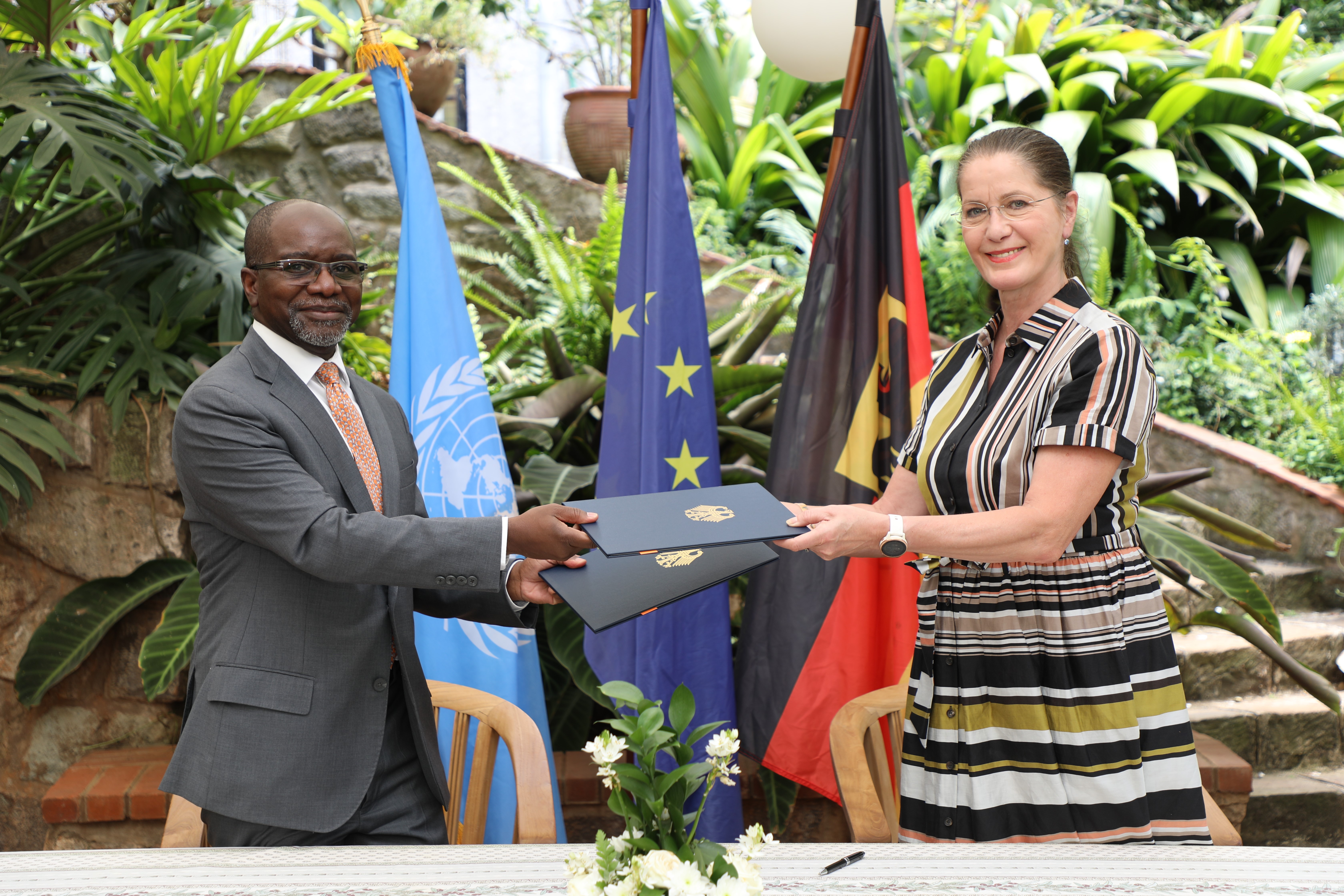Nairobi, 6 October 2020 - The Ambassador of the Federal Republic of Germany to Kenya, Annett Günther, and the Deputy Executive Director of UN-Habitat, Victor Kisob, signed a Contribution Agreement between the Federal Republic of Germany and UN-Habitat to establish the United Nations Innovation Technology Accelerator for Cities in Hamburg, Germany (UNITAC-Hamburg).
UNITAC-Hamburg will be a collaboration between HafenCity University and UN-Habitat supported by the United Nations Office of Information and Communications Technology (UN-OICT). A new Lab will be established, hosted by HafenCity University in Hamburg, Germany, that will develop and test innovative and technological solutions to solve urban challenges.
The Government of Germany is providing EUR 5.7 million (approximately USD 6.7 million) for four years to support the partners' efforts in enhancing the deployment of people-centred technologies and innovations for sustainable urban development, in line with the 2030 Agenda for Sustainable Development, the New Urban Agenda and the United Nations Secretary General's Roadmap for Digital Cooperation.
“We as Germany want to support the enhancing of people-centred technologies and innovations for sustainable urban development in line with the 2030 Agenda and the New Urban Agenda,” said Ambassador Günther.

UNITAC-Hamburg will promote open and participatory governance of data and digital platforms, innovations related to mapping, spatial analysis and data visualization and people-centred smart cities.
Together with the partners, UN-Habitat’s role will be to oversee the Lab and to implement people-centred digital and innovative solutions, including running Innovation Challenges and developing digital transformation policies and smart city masterplans in collaboration with local and national governments. In addition to working with governments, the Lab will work closely with citizens, private sector partners and the entrepreneurial ecosystem to develop knowledge and capacity on digital technologies and urban innovation, with the purpose of directly improving the quality of life of urban residents through the use of digital technologies globally.
“With over two-third of the world population expected to live in cities by 2050, it is our strong conviction that technology innovation will be central in addressing some of the most pressing challenging facing cities,” said Victor Kisob, UN-Habitat Deputy Executive Director, during the signing of the Contribution Agreement. “Such efforts will be key to ensuring that our cities are inclusive, sustainable and people-centred.”